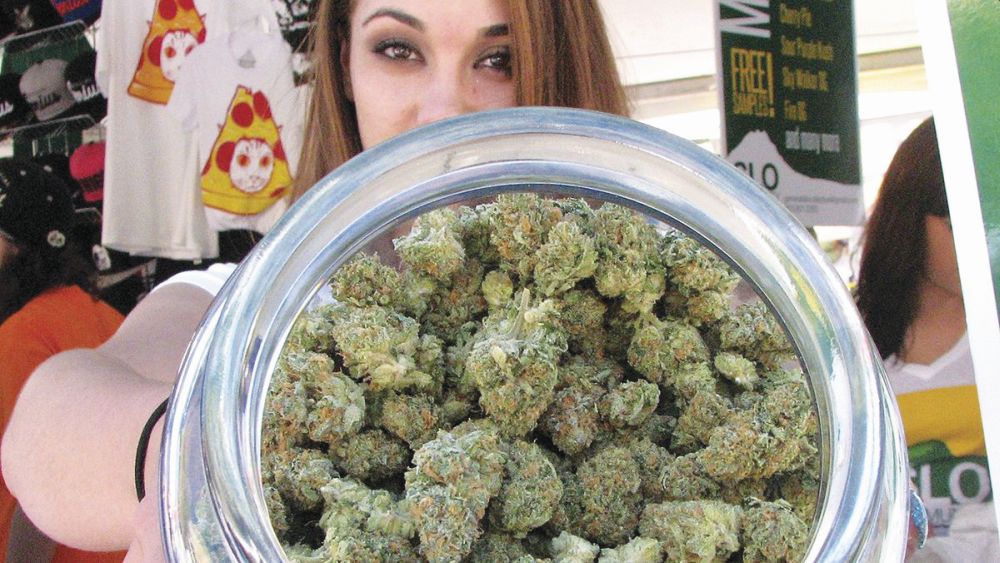What a difference a decade or so makes: In the lead-up to the legalization of weed in states like California, Washington and Colorado, the liquor business generally sided with the prohibitionists.
For instance, in 2011, the clumsily named trade association the California Beer and Beverage Distributors donated to the effort to oppose the first—failed—voter initiative to legalize weed in California. In 2016, similar groups donated to similar efforts in states like Arizona and Massachusetts, as well as California. Right around that same time, big liquor and beer companies warned investors that the burgeoning legal-pot industry might pose a threat.
This approach might seem to make sense: Pot and booze seem like they’re natural competitors. But, of course, that’s not really true—lots of people use both at the same time. The products are in many ways complementary. But there are lots of people who will choose one over the other. It’s complicated. Pot and booze are frenemies.
This was obvious from the start. Not everybody in the alcohol business was on board with opposing legal weed. For instance, when the CBBD gave money to the law-enforcement backed group that opposed legalization in California in 2011, several of its members—including Sierra Nevada and Stone Brewing—loudly declared their opposition to the CBBD’s efforts. That opposition got at least as much play in the media as did the CBBD’s anti-pot stance.
As the years passed and it became more obvious that legal pot wasn’t really hurting liquor sales, the booze industry began tempering its messages. As the industry started to realize legalization was inevitable, it began going beyond simply accepting the situation by asking, “How can we get in on this?” This was partly due to the realization that declining liquor sales had little to do with legal pot and more to do with health concerns.
So, over the past several years, some booze companies have invested in the pot industry and some pot companies have invested in the liquor industry. Some beer and liquor companies are introducing cannabis-infused beverages, or are acquiring makers of them. Just this month, cannabis giant Tilray expanded its beer portfolio by purchasing eight “craft” beer brands from Anheuser-Busch, including well-known names like Redhook and Widmer Brothers.
In March, the Wine & Spirits Wholesalers of America went on record in support of federal legalization, sending a letter to Congress. The continued illegality of weed at the federal level while states continue to legalize it “undermines the rule of law and weakens public health and safety, while leaving states unsupported in their efforts to create safe, regulated markets and eliminate dangerous black-market activity,” the letter stated.
The legal-weed industry welcomes new allies, of course, but in this case it should be wary of some. NORML, the leading advocate for legal weed, issued a warning in 2021: The lobbying groups getting on board with cannabis are acting out of self-interest, and those interests don’t always align with the cannabis industry’s or, more to the point, with those of cannabis consumers. Liquor, tobacco and other industries now lobbying on cannabis issues “have pushed for statewide limits on the number of licensed cannabis producers and retailers, in an effort to keep prices and supply artificially limited—and to keep the economic benefits of legalization largely out of the reach of average Americans, especially people of color,” NORML pointed out. In some cases, they have lobbied for states to prohibit people from growing weed at home. NORML, by contrast, believes in “the right to personal cultivation and mandates low barriers of entry to the cannabis market so that every American who wishes to benefit from legalization can do so.”
Industry structure is at the heart of many of the lobbying efforts. Last week, the law firm Feuerstein Kutrick, in its newsletter The Leaflet, warned that the highly concentrated liquor business might want to pattern the cannabis industry after itself. “At a minimum,” it noted, “a shift towards a regulatory structure that more closely resembles the alcohol industry would change the paradigm for a cannabis industry that has developed in a decentralized manner (out of necessity) over the past several decades.”
The question now is: How much of the cannabis industry is willing to play along with Big Booze?



